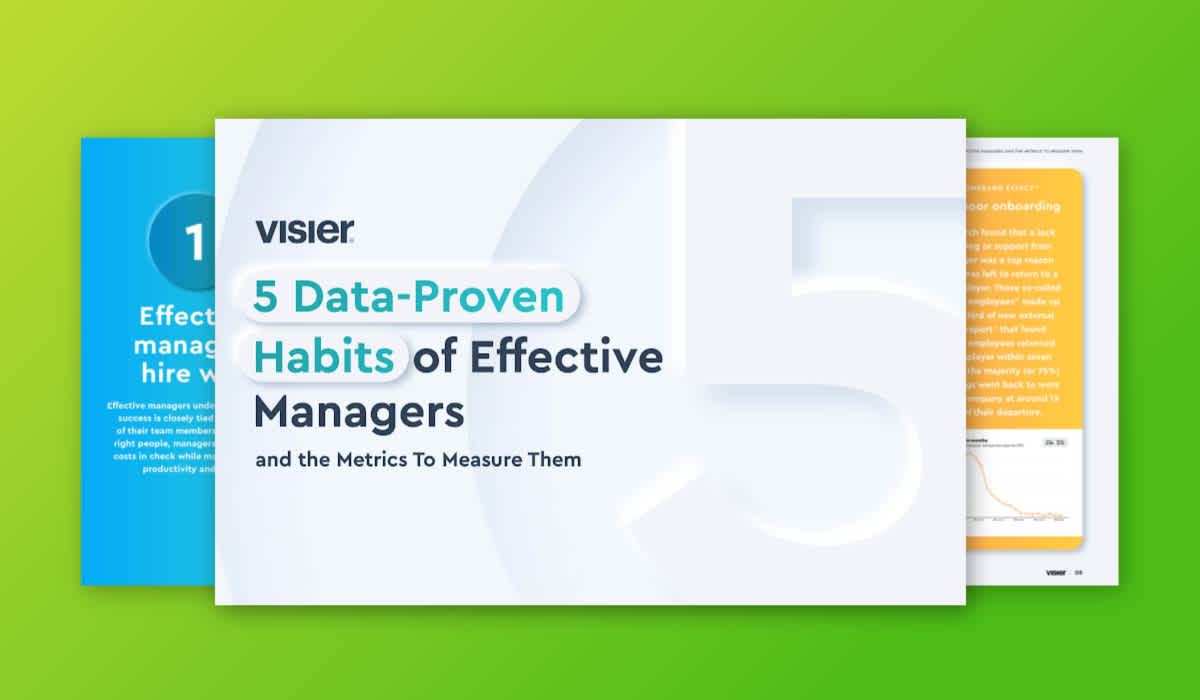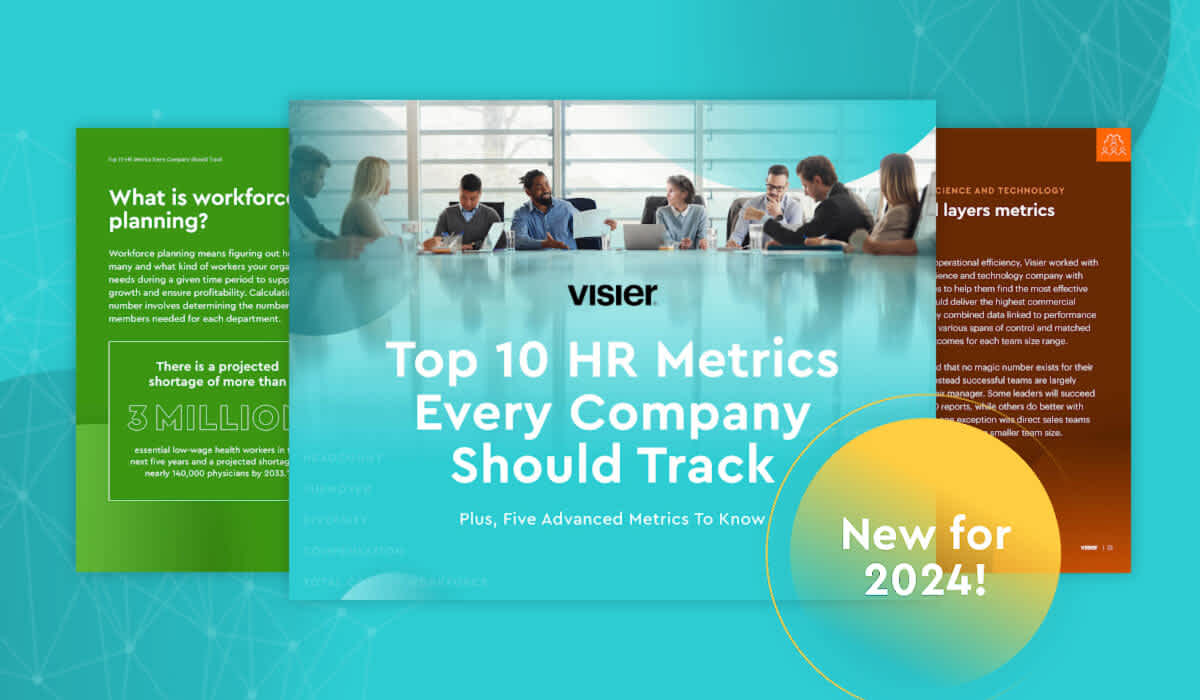What's a 'Science-Based Target?' Q&A With a Business Transformation Climate Consultant
Tom Dowdall of the Science-Based Targets initiative spoke to Visier about his work with corporations to adopt policies that would limit global warming.
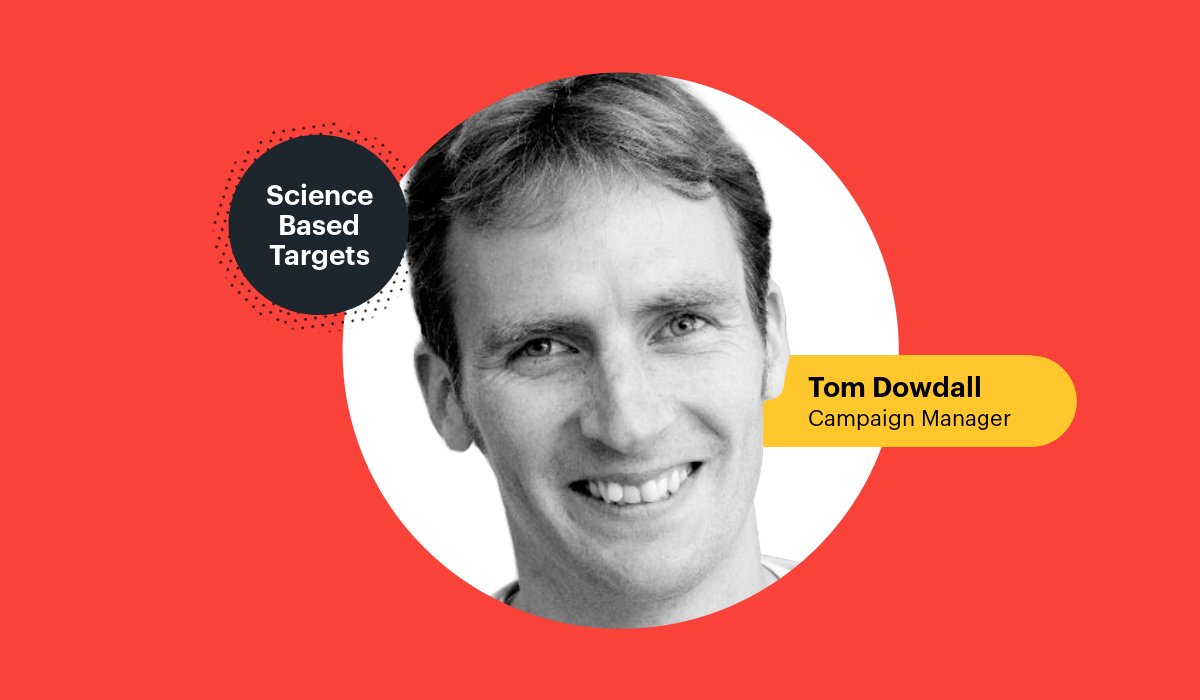
To gain more insight on what businesses can do to lead the way on climate change, Visier spoke with Tom Dowdall, Business Ambition for 1.5C Campaign manager at the Science Based Targets initiative. The Science Based Targets initiative (SBTi) drives ambitious climate action in the private sector by working with companies to set science-based emissions reduction targets. SBTi is a partnership between CDP, the United Nations Global Compact, World Resources Institute (WRI) and the World Wide Fund for Nature (WWF).
Visier: Tom, you’re doing some really innovative and ambitious work with companies who want to take action on climate change. I’m curious to know your take on COP26. Were you pleased with the outcomes of the Glasgow summit?
Tom Dowdall: The outcome—the Glasgow Climate Pact—has been met with praise and criticism, both of which are merited. We saw some good strides forward at COP26, both behind the scenes and in the final result. COP26 was a unique opportunity for world leaders to confirm action to meet the goals of the 2015 Paris Agreement, and commit to future action that keeps 1.5°C alive. But, however you look at it, one thing is clear: we must urgently increase climate action to decarbonize our economies at the pace and scale dictated by science.
“Climate-related risks for natural and human systems are higher for global warming of 1.5°C than at present, but lower than at 2°C (high confidence). These risks depend on the magnitude and rate of warming, geographic location, levels of development and vulnerability, and on the choices and implementation of adaptation and mitigation options (high confidence). “
1.5°C was at the forefront, with the language of the Glasgow Climate Pact much stronger surrounding limiting warming to 1.5°C compared to the Paris Agreement. The Pact also called on parties to revisit and strengthen their 2030 goals before the end of 2022. This near-term, urgent action is vital to prevent the worst effects of climate breakdown.
While we can be pleased with the overall outcome and hold on to some optimism, there is no time to get complacent.
Clearly not everyone felt the Summit was a success. Many felt that it failed to deliver on some key goals. How do you encourage companies to transform that disappointment into action?
There were definitely some disappointments, but we must harness the momentum and use it to address the shortfalls of the conference.
We have seen a surge when considering net-zero pledges which now cover 90% of global GDP, but there is an alarming gulf of ambition when looking at the near-term to 2030. On our current pathway, warming is projected to increase by 2.4°C by 2100. We must see a substantial uptake of near-term targets and halve global emissions by 2030.
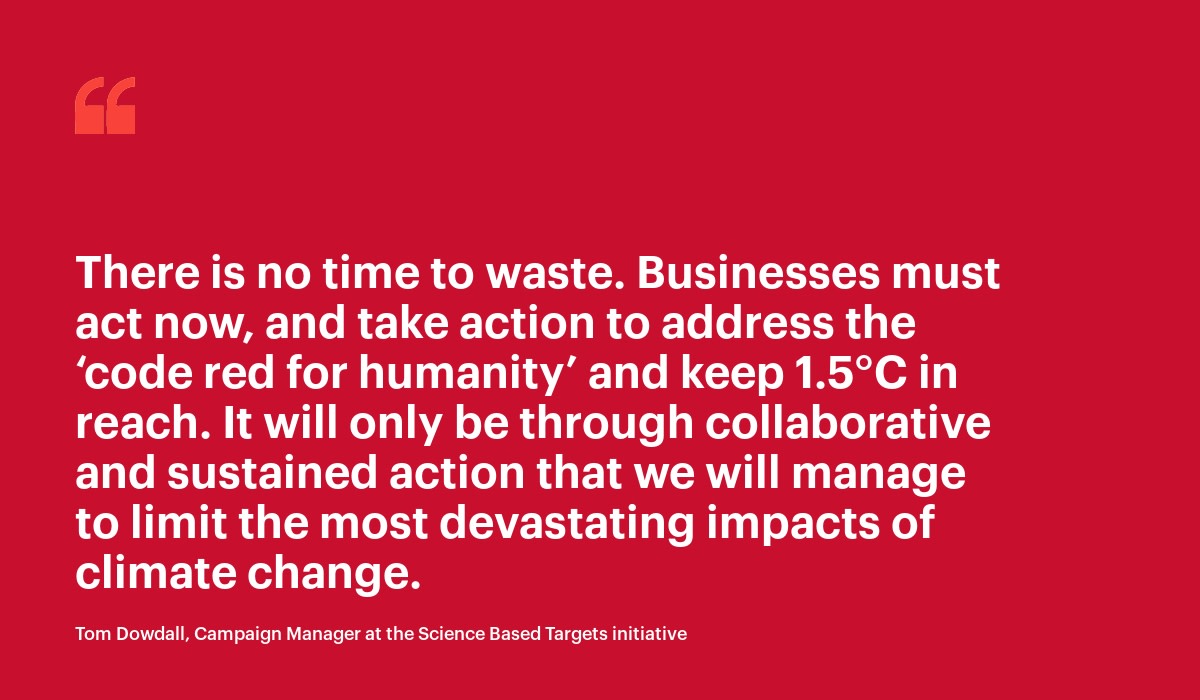
From the standpoint of businesses, what were the key takeaways from COP26?
It could not be more clear that companies have a crucial role to play in limiting warming to 1.5°C. If more and more companies act with urgency, this can influence governmental policy and we will see a domino effect of climate action.
There is no time to waste. Businesses must act now, and take action to address the ‘code red for humanity’ and keep 1.5°C in reach. It will only be through collaborative and sustained action that we will manage to limit the most devastating impacts of climate change.
Do you believe businesses have a responsibility to lead on climate action when governments fail to act with urgency?
Absolutely. We know the private sector has huge power to enact positive change and drive forward climate policy. Money talks, and there is no doubt that businesses must ensure their practices are sustainable and set targets that align with climate science.
There is no room for anyone to sit on the sidelines; we all have a role to play. By setting near- and long-term science-based targets, companies and financial institutions can be assured that they are taking the steps necessary to join the race against climate change. Strong and consistent policy advocacy is also crucial.
In what ways is the private sector stepping to the plate on these issues? What sort of impact are they making?
We have seen growing momentum in the private sector. Science-based targets are driving corporate decarbonization. Between 2015 and 2020, companies with validated targets cut emissions by 25% compared with an increase of 3.4% in global energy and industrial emissions.
Science-based targets show companies and financial institutions how much and how quickly they need to decarbonize in order to limit warming to 1.5°C.
Companies must look to immediately reduce emissions in the short-term, while also taking steps to enact a long-term vision of reaching net-zero by 2050. The science and the strategies are there—all it takes now is committed action and sustained policy advocacy.
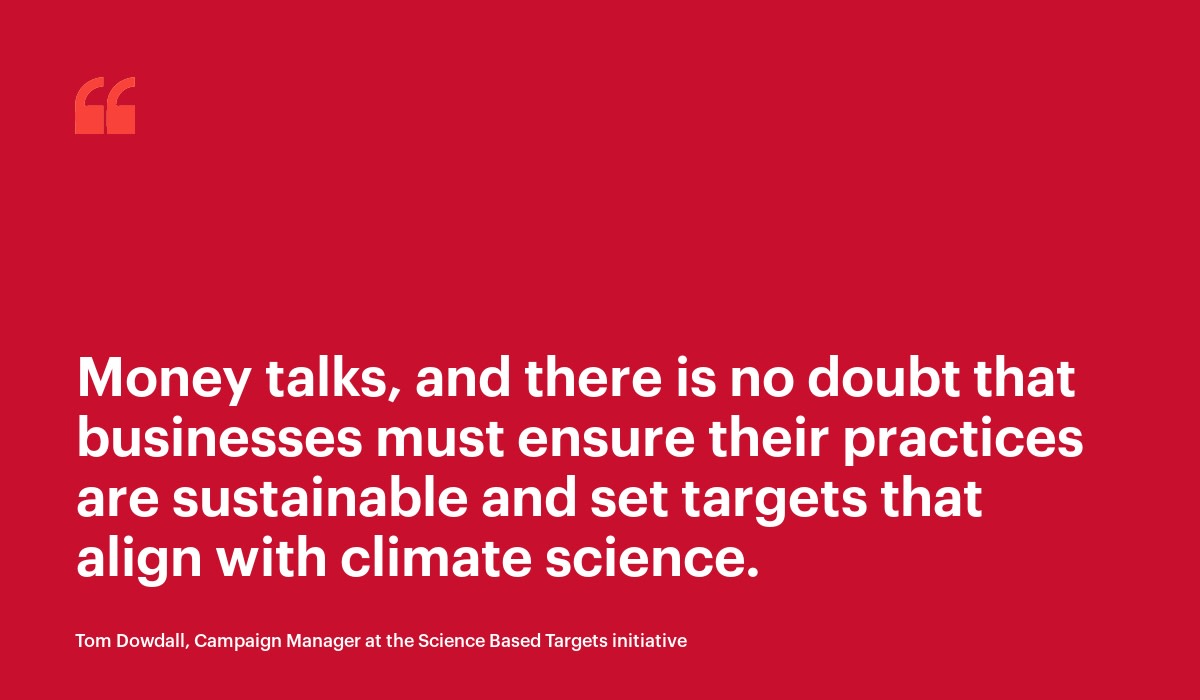
It’s great that companies are making public their pledges and commitments to net-zero, but how do we really know if companies are curbing their emissions? Is more reporting/accountability/transparency needed to monitor both public and private industry and their greenhouse gas emissions emissions?
There is growing demand for clarity and transparency around corporate decarbonization targets.
In October 2021, we launched the Net-Zero Standard providing a common and robust science-based understanding of net-zero target-setting. A net-zero foundations paper for financial institutions is also in the public consultation stage as we develop a Net-Zero Standard for financial institutions, expecting to launch in late 2022.
In early 2022, we will be beginning a process to develop a Monitoring, Reporting and Verification (MRV) standard for science-based targets, which will provide a clear and standardized framework to assess and independently verify the progress of companies and financial institutions against their science-based targets.

Which companies would you hail as being a great example to others in leading the way on climate action?
Following the launch of the Net-Zero Standard, we announced the first seven companies with validated net-zero targets – AstraZeneca (UK), CVS Health (US), Dentsu International (UK), Holcim (Switzerland), JLL (US), Ørsted (Denmark) and Wipro (India). These companies are leading the way in corporate climate ambition and demonstrating that the net-zero transformation can—and is—happening across multiple sectors around the world.
More than 600 companies have also made a commitment to reach science-based net-zero by 2050 through the SBTi’s Business Ambition for 1.5°C campaign. These companies are listed at the end of our recent Status Report: Business Ambition for 1.5°C – Responding to the Climate Crisis.
We are steadily seeing 1.5°C becoming the norm. These companies are putting into practice what we already know—we have many of the tools to achieve deep emissions reductions now; but we must have thousands more companies and financial institutions taking ambitious action in line with science.
Get the Outsmart newsletter
You can unsubscribe at any time. For more information, check out Visier's Privacy Statement.

